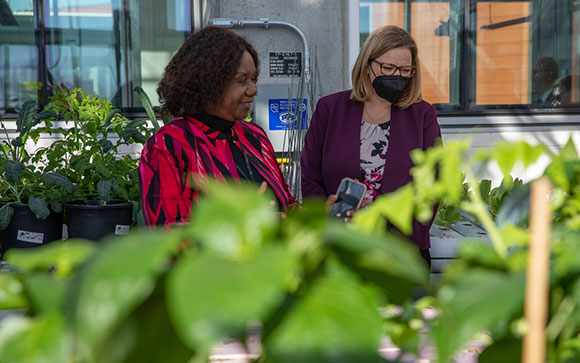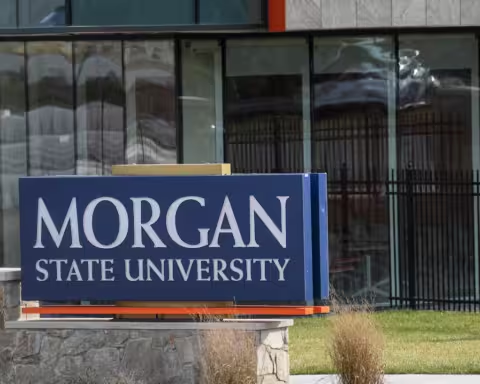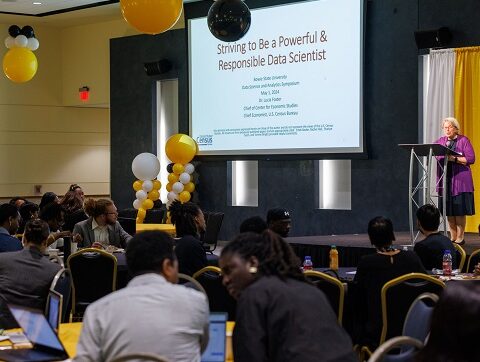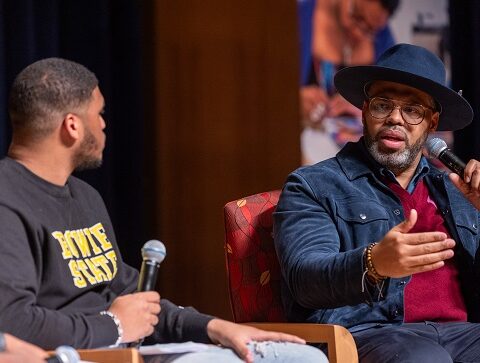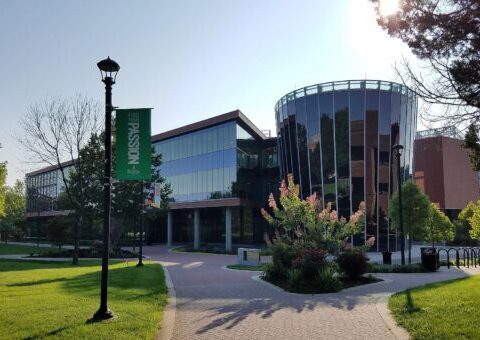By D. Thompson
Bowie State University will lend its agricultural research expertise to Prince George’s County as part of a federal grant program combatting climate change and food insecurity.
The U.S. Department of Agriculture (USDA) came to Bowie State this week to announce $3.25 million grant awarded to Prince George’s County as part of its Partnerships for Climate-Smart Commodities program to promote climate-friendly farming practices, combat food insecurity and increase farming participation among populations that have been underrepresented in farming. BSU’s research program in aquaponics and hydroponics will enable natural sciences faculty and students to be an integral part of this effort.
USDA Under Secretary Jennifer Lester Moffitt spoke during a panel discussion at Bowie State announcing the award and said that farmers are situated to counter climate change while responding to increasing demands for food production.
“Agriculture is at the frontline of climate change,” said Moffitt. “But agriculture is also at the frontline of making a difference in reducing the effects of climate change. Farmers are uniquely positioned to be able to address climate change while continuing to feed the world.”
Prince George’s County will use the funding to collaborate with Bowie State University for research into sustainable farming practices, ways to measure greenhouse gas benefits of different agricultural practices and outreach to individuals who want to start farms.
“We see this grant as an opportunity to think about problem solving and how we as a community can come together to support our farmers, have more farmers and get more people onto land,” said Andrea Crooms, director of Prince George’s County’s Department of Environment. “We have a farming community in Prince George’s County, but it doesn’t reflect our whole county. We want to see the same demographics in our farming community that we see in our county.”
Bowie State will work with the county to determine specifics about what role the university will fill and the amount of funding that will follow. But Bowie State is well-equipped to respond to modern agriculture’s challenges, especially with research in non-traditional agricultural practices like hydroponics and aquaponics. This unconventional way of growing crops is ideal for gardening with small spaces of land or can be installed indoors, on rooftops, or in the backyards of urban areas.
Hydroponics is a technique used to grow and produce food crops in a closed-loop system that reduces the use of water resources without the need for chemical fertilizers. Aquaponics is the integrated culture of fish, plants and beneficial microorganisms grown in a soilless environment.
Dr. Anne Osano, who leads Bowie State’s aquaponics and hydroponics program, notes the techniques are not only climate-friendly but can also be used to introduce people to the agriculture business since they don’t require large amounts of land or fertilizer to yield crops.
“We are preparing the next generation of the agricultural workforce,” said Dr. Osano. “One of the things we hope we do is encourage the community to begin their own little businesses in the back of their homes.”

